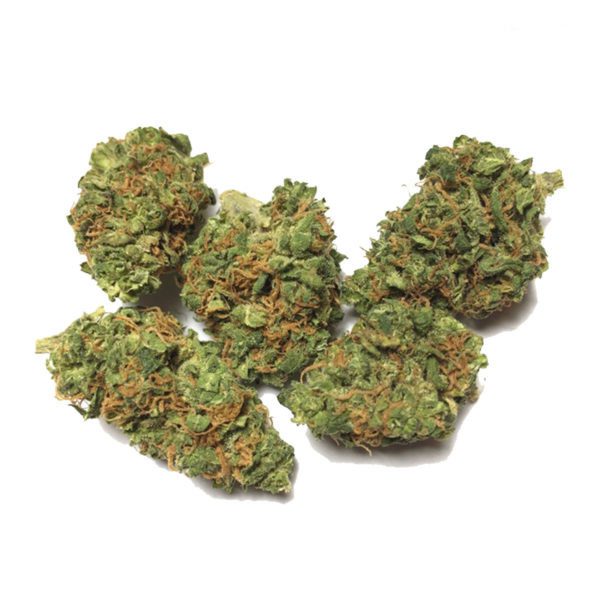Should Cancer Patients Use Cannabis? Cancer is a battle no one should face alone. For millions of patients worldwide, the physical pain, emotional toll, and debilitating side effects of treatments like chemotherapy can feel unbearable. But what if there was a natural ally in this fight—one that could ease suffering, restore appetite, and even offer a glimmer of hope where traditional medicine falls short?
That ally is cannabis.

In this comprehensive guide, we’ll explore:
- The science behind cannabis and cancer—what research really says
- How cannabis can help manage cancer symptoms (pain, nausea, insomnia)
- The truth about cannabis oil and cancer cures—separating fact from fiction
- Where to find high-quality cannabis oil for safe, effective relief
- The legal and ethical debates surrounding cannabis in cancer care
Whether you’re a patient, caregiver, or simply seeking answers, this is your roadmap to understanding how cannabis can be a lifeline in the fight against cancer.
1. The Harsh Reality of Cancer Treatment Side Effects
Before diving into cannabis, it’s crucial to acknowledge the brutal side effects of conventional cancer treatments:
- Chemotherapy-induced nausea and vomiting (CINV) – Up to 80% of patients experience severe nausea.
- Neuropathic pain – Nerve damage from chemo can cause chronic, burning pain.
- Cachexia (wasting syndrome) – A devastating loss of muscle and appetite.
- Anxiety, depression, and insomnia – The mental toll is just as crushing as the physical.
Many patients find that traditional medications (opioids, antiemetics) come with their own risks—addiction, drowsiness, and limited effectiveness.
This is where cannabis steps in.
2. How Cannabis Helps Cancer Patients: Science-Backed Benefits
While cannabis is not a cure for cancer, an overwhelming body of research shows it can significantly improve quality of life for patients. Here’s how:
A. Relieves Pain (Better Than Opioids?)
- THC and CBD interact with the body’s endocannabinoid system, reducing pain signals.
- A 2018 study found that cannabis reduced chronic pain by 40%, compared to 27% with opioids—with far fewer side effects.
- Neuropathic pain (common in chemo patients) responds particularly well to high-CBD strains.
B. Stops Nausea & Stimulates Appetite
- THC (the psychoactive compound in cannabis) is a powerful antiemetic (anti-nausea agent).
- Marinol (synthetic THC) is FDA-approved for chemo-related nausea.
- Cannabis also stimulates appetite, helping patients maintain weight and strength.
C. Reduces Anxiety & Improves Sleep
- CBD has anti-anxiety effects without the “high.”
- Indica-dominant strains can help with insomnia and restlessness.
D. Emerging Anti-Cancer Properties
- Preclinical studies (lab and animal tests) suggest THC and CBD may:
- Slow tumor growth (glioblastoma, breast cancer).
- Trigger apoptosis (cancer cell death).
- However, human trials are still limited. (More on this later.)
3. The Controversial Question: Can Cannabis Oil Cure Cancer?
Should Cancer Patients Use Cannabis? The internet is flooded with miracle stories of people curing cancer with Rick Simpson Oil (RSO) or other cannabis extracts. But what’s the truth?
What the Science Says:
✅ Lab studies show promise – THC and CBD have anti-tumor effects in petri dishes and mice.
❌ No human clinical proof – There are no large-scale studies confirming cannabis cures cancer in people.
The Risks of Relying Solely on Cannabis Oil
- Delaying proven treatments (chemotherapy, radiation) can be deadly.
- Dosing is unregulated – Too much THC can cause paranoia or worsened side effects.
- Not all cannabis oils are equal – Many black-market products contain contaminants.
Bottom line: Cannabis oil may help manage symptoms and could have future potential in cancer treatment—but it should not replace conventional therapy without medical supervision.
For a deeper dive, read: Can Cannabis or Cannabis Oil Cure Cancer? Examining the Evidence
4. Where to Find High-Quality Cannabis Oil for Cancer Patients
Should Cancer Patients Use Cannabis?
Not all cannabis products are created equal. For cancer patients, purity, potency, and lab testing are critical.
What to Look For:
✔ Full-spectrum extracts (whole-plant benefits)
✔ Third-party lab tested (no pesticides, heavy metals)
✔ Accurate dosing (especially for THC-sensitive patients)
Trusted Sources:
- Full-Spectrum CBD Oil – Non-psychoactive relief for pain and inflammation.
- THC-Rich Tinctures – For nausea and appetite stimulation.
For more guidance, see: The Ultimate Guide to Medical Cannabis Benefits

5. Legal & Ethical Considerations: Should Cannabis Be Fully Legalized?
The debate over cannabis legalization is fierce, especially concerning medical use for cancer patients.
Why Many Advocate for Legalization:
- Access to safe, regulated medicine (no more black-market risks).
- More research funding (current restrictions limit studies).
- Fewer side effects than opioids (less addiction potential).
For a thought-provoking discussion, read: Do You Agree with the Full Legalization of Cannabis?
6. The Future of Cannabis in Cancer Care
The landscape is changing fast:
- More clinical trials are underway.
- Personalized cannabis therapies (tailored to cancer types) are emerging.
- Global acceptance is growing (see: Top Cannabis Consumption Trends in 2025).
Final Thoughts: A Message of Hope
Should Cancer Patients Use Cannabis?
Cancer is a relentless enemy, but cannabis offers a weapon against suffering—whether by easing pain, restoring appetite, or simply bringing a moment of peace in the storm.
If you or a loved one is considering cannabis:
- Talk to your oncologist.
- Start low, go slow.
- Choose lab-tested products.
For ongoing insights, follow: Cannabis Chronicles: A Live Journal of Discoveries
Have a Story to Share?
Your journey could inspire others. Comment below or join the discussion here:
Together, we can turn hope into healing. 💚

For the reason that the admin of this web page is working, no
doubt very shortly it will be famous, due to its
quality contents.